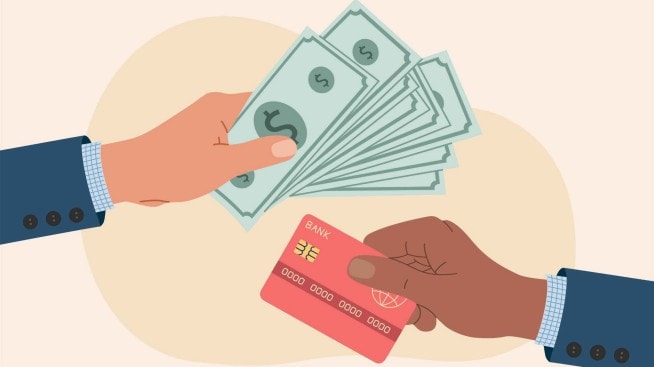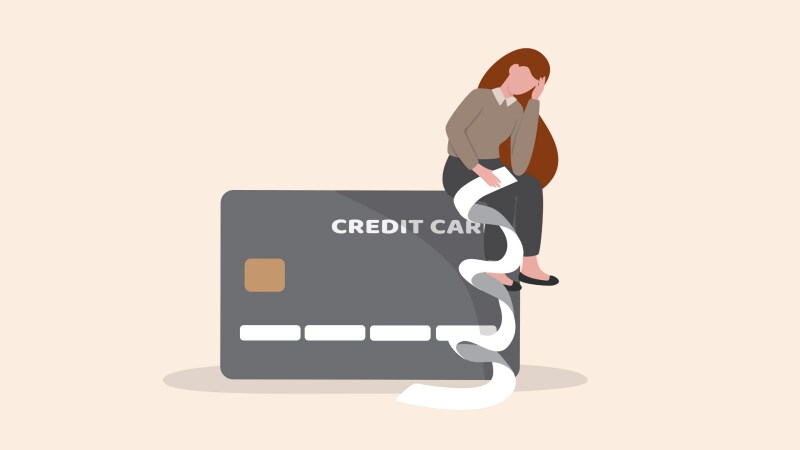What is a junk fee?

Quick insights
- Junk fees are surcharges found on various different transactions.
- Event tickets and travel reservations are two common examples of transactions that might include junk fees.
- Reading the fine print for your purchases can help avoid junk fees.
Junk fees—another name for what are often seen as unsuspecting surcharges—can appear on bills, loans, air travel, hotel rooms, bank transactions and event tickets, among other things. The term gets its name due to the notion that these charges often seem like an unnecessary add-on to your purchase.
This makes them unpopular with many consumers—and rightly so. In December 2024, the Federal Trade Commission (FTC) announced its intent to send the Federal Register a bipartisan final rule that will “target bait-and-switch pricing and other tactics” used to hide or misrepresent total prices and fees for short-term lodging and live-event tickets. The rule is meant to protect consumers from hidden fees, and will be in effect 120 days after it’s published in the Federal Register.
In this article, we’ll go over the following questions:
- What are junk fees?
- Where could you encounter junk fees?
- How can I avoid junk fees?
What are junk fees?
Perhaps this has happened to you — you are excited to purchase a product or service, get to the end of the transaction process, and realize you’re being hit with a slew of additional fees that were not disclosed up front. These junk fees, as they’re known, are most commonly present with event tickets and travel reservations, but can be found in a broad range of scenarios.
Consumers may find that some sellers don’t always disclose certain fees until you get to checkout or that some fees are misrepresented.
Other times, junk fees are obscured in the fine print, and you don’t notice them until after you receive your bill. These could be processing fees, convenience fees or others.
Junk fees have been under scrutiny in recent months, from both policymakers and the White House, due to concerns that these fees are excessive, unfairly communicated and that they make it challenging for consumers to comparison shop if they don’t know the full price of something up front.
Ways junk fees can affect your credit score
Junk fees do not impact your credit directly, though they can add up over time. It may be helpful to review credit card statements and set up automatic payments to ensure you pay your bills on time. Below, we cover a few ways to potentially avoid junk fees altogether.
How to avoid junk fees
Sometimes fees are unavoidable, as they are bundled into services that you need—such as the installation fees associated with your cell phone, cable or internet. In some cases though, there may be ways to avoid or minimize them.
- Read the fine print: Before signing a contract, loan agreement, travel booking, etc.— take a close look at what you’re being charged for. Ask questions about what fees to expect, and consider shopping elsewhere if you learn of excessive or unclear fees.
- Review all purchases: Read your receipts and itemized bills after paying for a service. If you notice an unfair or unclear fee, you may be able to ask for a refund if the fee wasn’t disclosed up front.
- Speak with customer service: If you purchase or intend to purchase a product or service and you notice a surprise fee or purposefully obscured fee, call the customer service phone number and ask the representative if it’s possible to waive the fee or refund it.
- Shop around: Research which companies and service providers are transparent with their fees, and/or only do business with ones who don’t charge any junk fees. For example, when booking a hotel, look for one that doesn't charge resort fees. If you’re applying for a mortgage, ask for all closing cost fees up front and then get quotes from several lenders to compare.
In summary
The FTC’s new bipartisan junk fee rule will require businesses to fully disclose the purpose and full amount of any fees a consumer would be responsible for. The rule is expected to go into effect during 2025.
In the meantime, it’s a good idea to read the fine print of any purchase or agreement you enter into, always review your receipts and bank statements and shop around until you find a business that doesn’t hide their fees.
In addition, you may want to consider how your personal management of loan payments, bills and debt can greatly impact your financial wellness—and your credit score.



